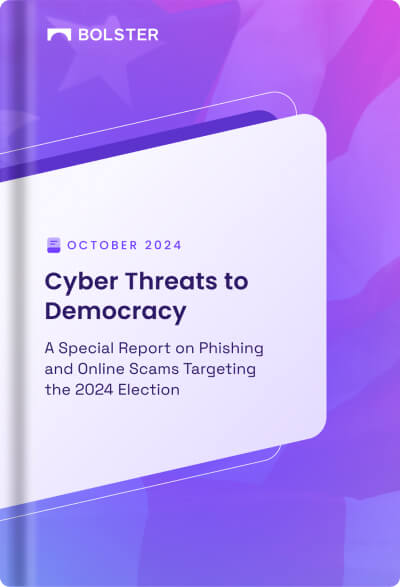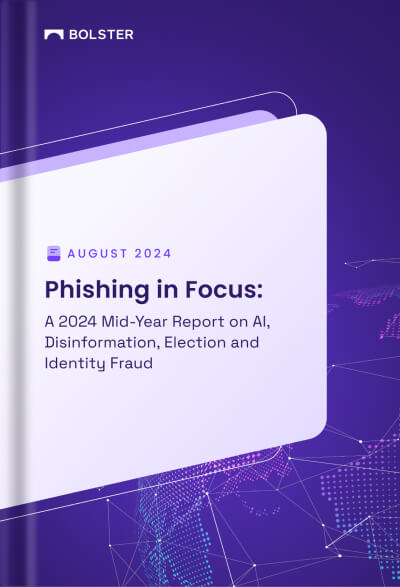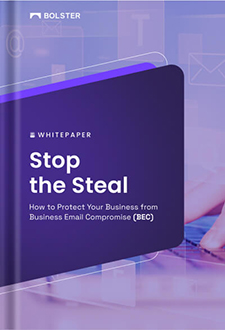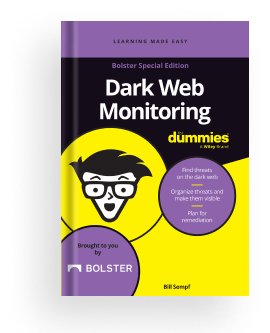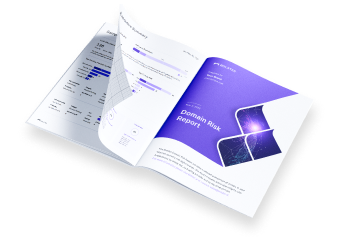How Brand Protection Can Safeguard Your Business Reputation
In today’s digital age, brand protection has become an essential aspect of business strategy. Not only does it safeguard your company’s reputation, but it also helps you maintain a competitive edge in the market. As IT security and risk management professionals, understanding key elements of brand protection and how to implement them is crucial for protecting your organization from reputational damage and loss of revenue. In this blog post, we’ll delve into what brand protection is, the consequences of not implementing it, key elements to consider when developing a strategy for safeguarding your brand reputation, and best practices for implementation.
What is Brand Protection?
Brand protection refers to the measures companies take to safeguard their brand against counterfeit products, unauthorized use of trademarks, and other forms of infringement. This involves a range of actions, such as monitoring online marketplaces for fake goods and taking legal action against infringers.
Authenticity is at the core of brand protection. It ensures that customers can trust the quality and reputation associated with a particular brand. Compliance with copyright laws is also crucial in maintaining authenticity. By protecting your brand, you are safeguarding your business’s reputation and ensuring consumer confidence in your products or services.
Definition of Brand Protection
Understanding the concept of brand identity is crucial for businesses to establish and maintain a positive reputation. Brand protection entails taking necessary actions to ensure authenticity, compliance and copyright infringement are not jeopardizing your brand’s reputation. By implementing measures such as monitoring online activity and legal action when necessary, brand protection helps safeguard your business reputation from potential damage caused by external threats.
Brand protection is crucial for businesses to safeguard their reputation from potential damage caused by external threats, and can help preserve the integrity of your organization’s image in the long run.
Through meticulous attention to detail, effective management of intellectual property rights, and proactive communication with customers, stakeholders and regulatory bodies; brand protection can help preserve the integrity of your organization’s image in the long run. As competition continues to grow across various industries, it is vital that businesses prioritize protecting their brands against any threat that could negatively impact customer trust or financial performance.
Importance of Brand Protection
Protecting your brand is crucial to safeguarding your business reputation. Actions that can be taken include protecting against counterfeits and imitations, preventing trademark infringement and dilution, maintaining customer trust and loyalty through consistent branding, compliance with copyright laws, ensuring authenticity of products or services offered by the company. Counterfeit goods not only hurt sales figures but also tarnish the image of a business which can have far-reaching consequences on its stakeholders. Protecting trademarks from potential infringers prevents confusion in the market about what a brand stands for. Consistency in branding helps maintain customer trust and loyalty since they know what to expect from a particular company’s products or services. Overall, effective brand protection strategies keep businesses competitive while preserving their reputation.
In conclusion, protecting your brand isn’t just an option but rather a necessity that every IT security and risk management professional should prioritize within their organization’s operations. With sound strategies such as those mentioned above (protecting against counterfeits & imitations), preventing trademark infringement & dilution), maintaining consistency in branding) coupled with compliance with copyright laws and authenticity of products/services offerings ensures businesses are well-positioned amidst competition whilst preserving their integrity/reputation among customers/stakeholders alike!
Types of Brand Infringement
Trademark infringement is a type of brand infringement where an unauthorized party uses a registered trademark without permission. This can include using the same or similar logo, name, or slogan as the original company and can lead to confusion among consumers.
Counterfeiting is another form of brand infringement that involves producing fake goods that mimic the appearance and packaging of the original product. These counterfeit products may be of lower quality but sold at a lower price, which harms the reputation of the genuine brand and its sales.
Domain name hijacking occurs when someone registers a domain name similar to an existing business’s website with the intent to profit from it through either advertising revenue or by demanding payment for its return. This can lead to losing customers directed toward fraudulent websites instead of visiting legitimate ones.
Fundamentally, brand protection covers a range of problems that companies face. Some of the other common brand infringement attacks are:
• Phishing Attacks
• Business Email Compromise
• Fraud or Scam Campaigns
• Copyright Infringement
• Typosquatting
• Social Media Fraud
• Account Takeovers
• Malicious Mobile Apps
The Consequences of Not Protecting Your Brand
Not protecting your brand can have dire consequences. Reputation damage is one of the biggest risks that you face when your brand is not protected. Customers are more likely to trust companies with a positive reputation, and negative reviews or publicity can tarnish your image instantly.
In addition to reputation damage, not protecting your brand can lead to revenue losses. If counterfeit products flood the market with low-quality alternatives or if customers are misled by fraudulent websites purporting to be yours, it could harm sales and consumer confidence in the long run. Protecting your brand from these illegal practices will help you maintain customer trust and loyalty while keeping revenues steady.
Reputation Damage
Negative publicity caused by counterfeit products or services can have a significant impact on a business’s reputation. The association with low quality and fraudulent activity can cause brand image and credibility damage, resulting in the loss of customer trust and loyalty. This fallout could result in long-term revenue losses for the organization.
Furthermore, customers’ diminished faith in a company’s products or services may lead to legal issues as well as costly recalls. Negative publicity will also harm future opportunities for growth and expansion by compromising partnerships with reputable brands.
Protecting your brand from counterfeiting is critical to maintaining its value within the market. By creating secure packaging that effectively deters unauthorized reproductions, companies safeguard themselves against financial loss while preserving their hard-earned reputation through active brand protection measures.
Revenue Losses
Counterfeiting can cause significant revenue losses for businesses, as well as damaging their reputation in the market. Reduced sales due to competition from counterfeit products and decreased revenue from legitimate sales caused by price erosion are two of the most common issues that companies face. These losses affect not only profits but also investment potential.
The costs associated with product recalls, legal proceedings, and reputational damage control further exacerbate these revenue losses. In addition to direct financial expenses such as legal fees and fines, there is also an intangible cost to the company’s reputation that may be difficult to quantify. Below is a bullet list breaking down each of these factors:
- Reduced sales due to competition from counterfeiters
- Decreased revenue from legitimate sales caused by price erosion
- Costs associated with product recalls
- Legal proceedings
- Reputational damage control
Legal Issues
Protecting your brand is essential for maintaining your business reputation. Intellectual property infringement lawsuits are a common legal issue faced by businesses that fail to protect their trademarks and copyrights. If found guilty, the fines and penalties for non-compliance with intellectual property regulations can be substantial, resulting in significant financial losses.
Enforcing intellectual property rights can be particularly challenging in countries with weaker IP protection laws. This makes it vital for companies to take proactive measures to safeguard their brands against potential infringements. Working with legal experts who specialize in brand protection can help minimize risks and ensure compliance with applicable regulations, ultimately protecting both your reputation and bottom line.
Conclusion
Effective brand protection strategies are crucial in safeguarding a business’s reputation. By identifying and preventing various types of brand infringement, companies can ensure that their intellectual property is protected from unauthorized use or misuse. This helps maintain the brand’s authenticity and assures customers of the company’s commitment to quality.
Investing in competent brand protection measures can help businesses save themselves from potential financial losses and reputational damage caused by fraudulent activities such as counterfeiting or piracy. In today’s digital age, where online presence is essential for success, protecting your brand has become more critical than ever before. By implementing robust security protocols and constantly monitoring for threats, businesses can rest assured knowing that they have taken proactive steps towards safeguarding their valuable assets – their brands!
How Bolster Can Help
Bolster’s domain monitoring solutions and other defensive strategies will ensure your company has true domain security. Bolster balances domain acquisition with monitoring to reduce the likelihood of cyberattacks and manage security costs.
Additionally, Bolster will remain proactive and monitor the security threat landscape to keep your domain safeguarded. With Bolster’s help, your brand’s reputation will remain protected.
Request a demo of our domain monitoring software today, or start with a complimentary and customized Domain Risk Report to see what domain risks we detect for your organization.
Also, check out our community tool CheckPhish
